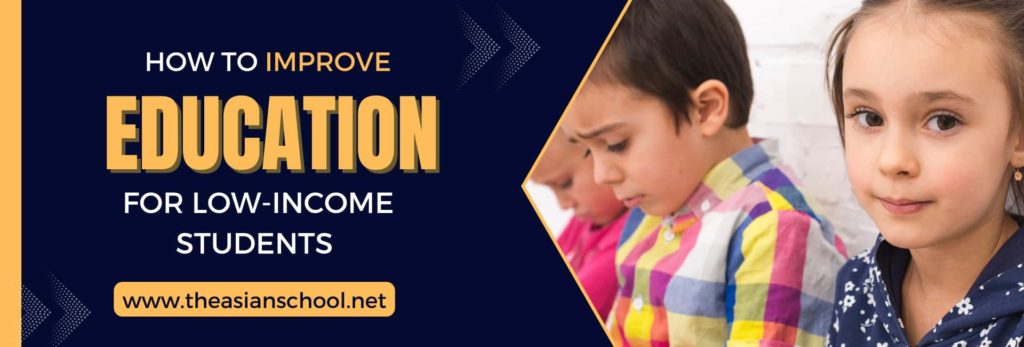There has been a noteworthy change in the way education is imparted across the globe. One of the most prominent changes is the adoption of Project Based Learning (PBL). This innovative approach to learning focuses on engaging students in real-world projects and activities, moving away from traditional rote learning methods. In the context of CBSE (Central Board of Secondary Education) education, benefits of project based learning in CBSE education highly proven for students, offering numerous advantages that enhance the overall learning experience for students.
- What is Project Based Learning in CBSE Education?
- Benefits of Project Based Learning in CBSE Education
- 1. Enhances Critical Thinking and Problem-Solving Skills
- 2. Encourages Collaboration and Teamwork
- 3. Boosts Engagement and Motivation
- 4. Promotes Independent Learning
- 5. Improves Retention of Knowledge
- 6. Develops Research Skills
- 7. Enhances Creativity and Innovation
- 8. Bridges the Gap Between Theory and Practice
- 9. Prepares Students for the Future
- 10. Fosters a Love for Lifelong Learning
- Implementing Project Based Learning in CBSE Schools
- Benefits of Project Based Learning in CBSE Education
What is Project Based Learning in CBSE Education?
Project Based Learning (PBL) is an educational approach that emphasizes learning through hands-on projects and real-world challenges. Instead of merely memorizing facts and information, students actively engage in projects that require critical thinking, problem-solving, collaboration, and creativity. In CBSE schools, Project Based Learning involves students working on projects over an extended period, which helps them acquire deeper knowledge and skills.
Benefits of Project Based Learning in CBSE Education
1. Enhances Critical Thinking and Problem-Solving Skills
The improvement of critical thinking and problem-solving abilities is one of the main advantages of CBSE project-based learning. Students are encouraged to think critically about the issues they face and come up with creative solutions when working on projects. With this practical approach, students are able to apply their knowledge in real-world scenarios and get a deeper understanding of complicated subjects.
2. Encourages Collaboration and Teamwork
In CBSE schools, Project Based Learning often involves group projects, which promote collaboration and teamwork among students. Working together on a common goal helps students evolve vital communication and interpersonal skills. They learn to share ideas, listen to others, and work cooperatively, which are valuable skills for their future careers and personal lives.
3. Boosts Engagement and Motivation
Traditional classroom settings can sometimes cause disengagement and boredom among students. However, Project Based Learning in CBSE education keeps students actively engaged by making learning more relevant and interesting. Students are more motivated to learn and actively engage in the learning procedure when they are working on projects that are connected to real-world problems.
4. Promotes Independent Learning
CBSE Project Based Learning encourages students to take ownership of their learning. Instead of relying solely on teachers for information, students conduct their own research, explore resources, and gather data to complete their projects. In order to prepare students for further schooling and future occupations where self-directed learning is essential, this cultivates a sense of independence and self-reliance in them.
5. Improves Retention of Knowledge
Research has indicated that kids learn best through hands-on experiences since they retain the information better. Project Based Learning in CBSE education allows students to apply what they have learned in real-life situations, reinforcing their understanding of the subject matter. Learning becomes more significant and interesting when it is done this way.
6. Develops Research Skills
In CBSE schools, research is an essential part of project-based learning. To support their projects, students must collect data from a variety of sources, analyze it, and make conclusions. They gain strong research abilities via this process, which is beneficial for both academic performance and well-informed decision-making.
7. Enhances Creativity and Innovation
CBSE Project Based Learning provides students with the opportunity to think creatively and come up with innovative solutions to problems. Working on a variety of topics encourages kids to think creatively and from a variety of angles. This develops their inventive spirit and stimulates their inventiveness.
8. Bridges the Gap Between Theory and Practice
The capacity of project-based learning to close the knowledge gap between theory and practice is one of its main benefits in CBSE education. In addition to learning theoretical ideas, students also comprehend how to apply them in practical situations. This practical approach to learning helps students see the relevance of their education and prepares them for real-life challenges.
9. Prepares Students for the Future
The skills and knowledge gained through Project Based Learning in CBSE schools are highly relevant to the demands of the 21st-century workforce. Critical thinking, problem solving skills, collaboration, and creativity are all essential skills that employers seek in today’s job market. By incorporating PBL into the curriculum, CBSE schools are equipping students with the tools they need to succeed in their future careers.
10. Fosters a Love for Lifelong Learning
Project Based Learning in CBSE education instills a love for knowing that expands beyond the classroom. When students are actively engaged in their projects and see the real-world impact of their work, they develop a passion for learning that lasts a lifetime. This intrinsic motivation to learn is a valuable asset that will serve them well throughout their lives.
Implementing Project Based Learning in CBSE Schools
While the benefits of Project Based Learning in CBSE education are clear, successful implementation requires careful planning and support from educators, administrators, and parents.
Here are some key steps to effectively incorporate PBL into CBSE school –
1. Training for Teachers
Teachers play a crucial role in the success of Project Based Learning. It is recommended that CBSE schools offer their instructors opportunities for training and professional growth so they can better comprehend PBL principles and effectively guide student-led projects.
2. Curriculum Integration
Incorporating Project Based Learning into the CBSE curriculum requires thoughtful planning. Schools should identify areas where PBL can complement traditional teaching methods and design projects that align with the learning objectives of different subjects.
3. Providing Resources and Support
CBSE schools need to ensure that students have access to the necessary resources and support to complete their projects. This includes access to libraries, online databases, technology, and guidance from teachers and mentors.
4. Assessment and Evaluation
Assessing student performance in Project Based Learning can be challenging. CBSE schools should develop clear criteria for evaluating projects, considering both the process and the final product. Peer evaluations, self-assessments, and rubrics can all be utilized to give students thorough feedback.
5. Involving the Community
Incorporating Project Based Learning into the community can improve students’ educational experience. In order to give pupils access to real-world experiences and chances for worthwhile initiatives, CBSE schools can work with neighborhood businesses, organizations, and specialists.
Conclusion
Project Based Learning in CBSE education offers a multitude of advantages that improve the overall knowledge experience for students. By promoting critical thinking, collaboration, creativity, and practical application of knowledge, PBL prepares students for the challenges of the future. As more CBSE schools adopt this innovative approach, students will be better equipped to succeed academically and professionally, fostering a generation of lifelong learners and problem-solvers.
Implementing CBSE Project Based Learning requires dedication and effort from educators, administrators, and parents. However, the rewards are well worth the investment. By embracing Project Based Learning, CBSE school can create a more engaging, relevant, and effective educational experience for all students.
Read Blog: Importance of Problem Solving Skills in Student Development














